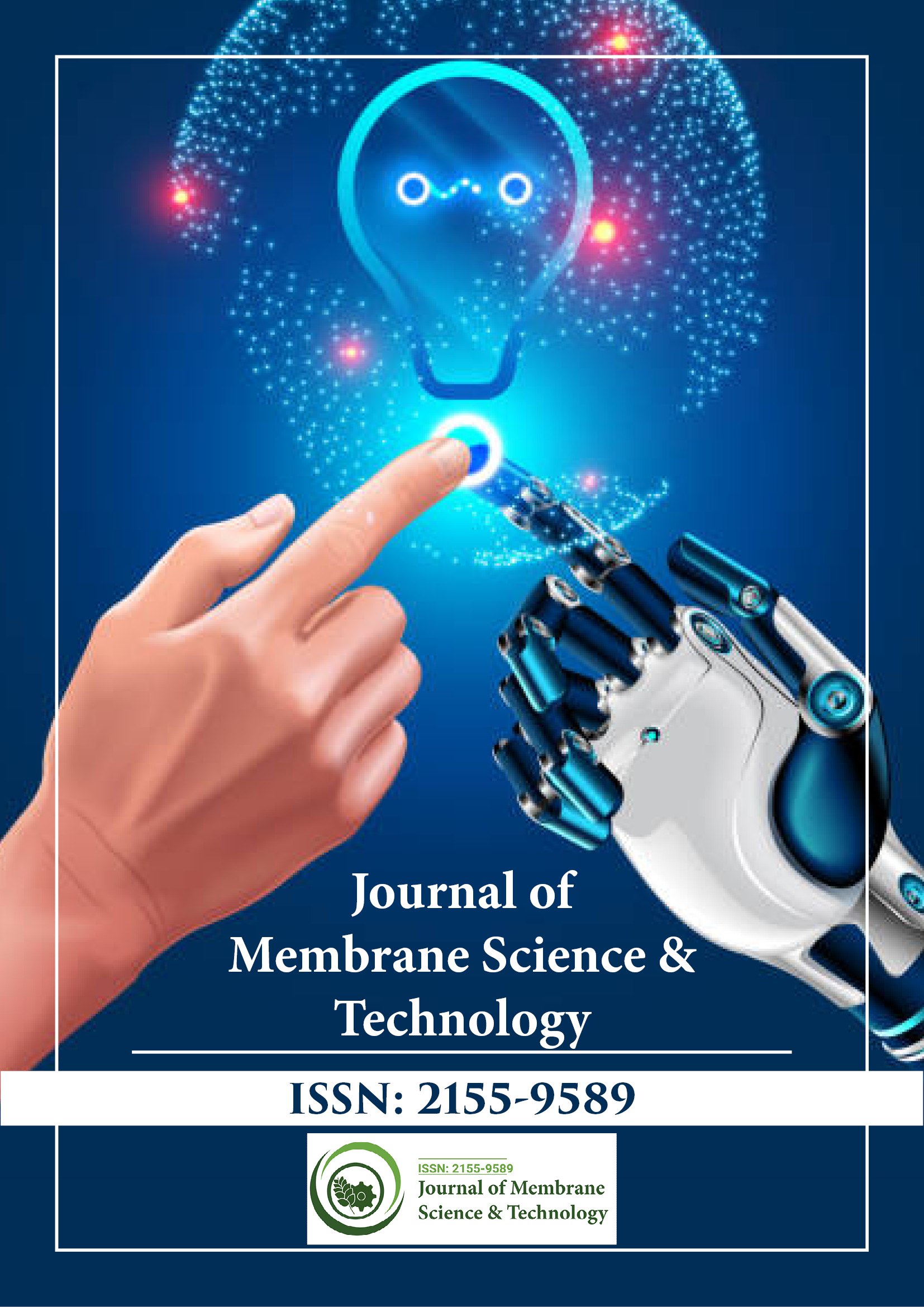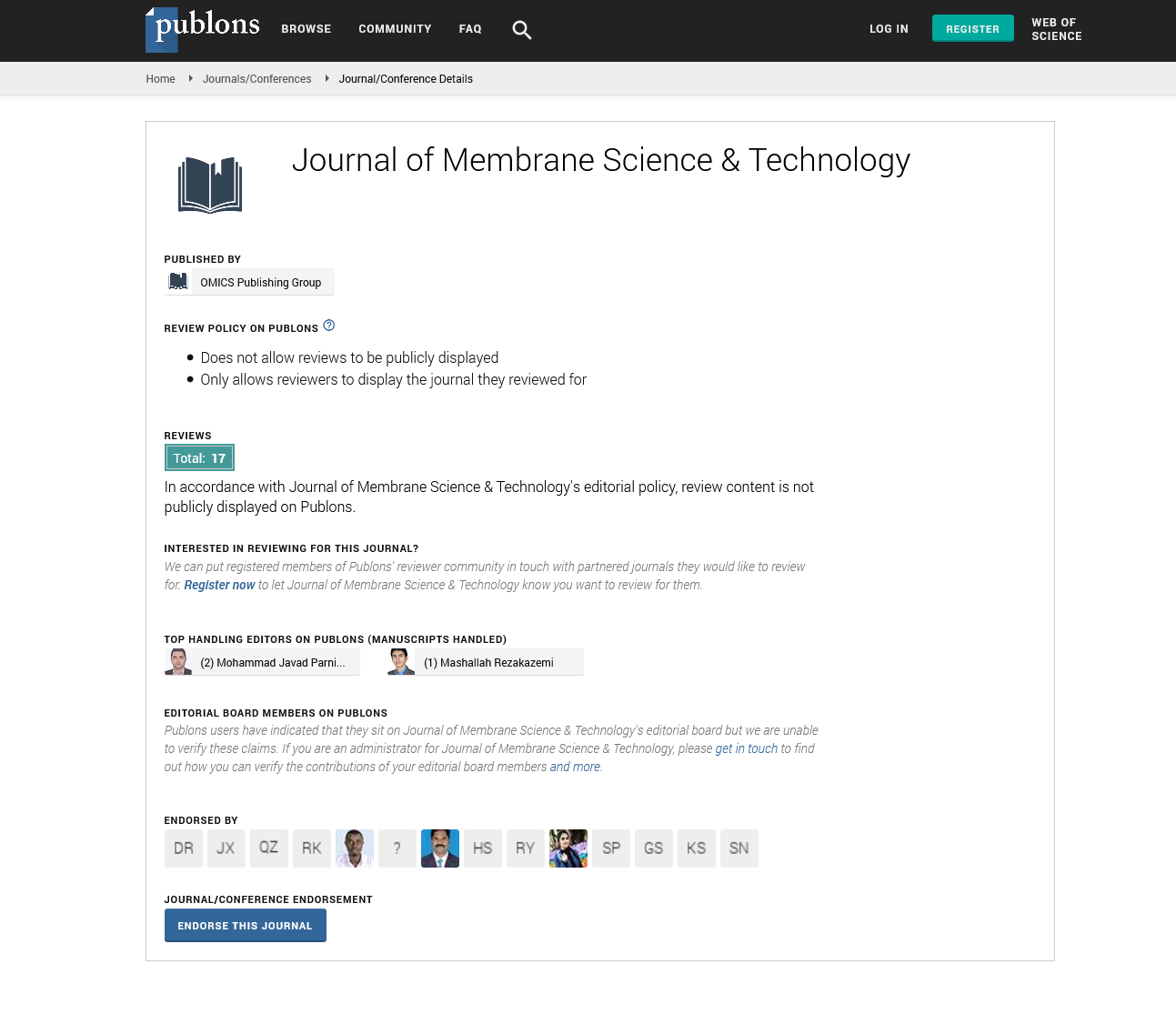Indexed In
- Open J Gate
- Genamics JournalSeek
- Ulrich's Periodicals Directory
- RefSeek
- Directory of Research Journal Indexing (DRJI)
- Hamdard University
- EBSCO A-Z
- OCLC- WorldCat
- Proquest Summons
- Scholarsteer
- Publons
- Geneva Foundation for Medical Education and Research
- Euro Pub
- Google Scholar
Useful Links
Share This Page
Journal Flyer

Open Access Journals
- Agri and Aquaculture
- Biochemistry
- Bioinformatics & Systems Biology
- Business & Management
- Chemistry
- Clinical Sciences
- Engineering
- Food & Nutrition
- General Science
- Genetics & Molecular Biology
- Immunology & Microbiology
- Medical Sciences
- Neuroscience & Psychology
- Nursing & Health Care
- Pharmaceutical Sciences
Opinion Article - (2022) Volume 12, Issue 10
Biological Methods in Municipal Wastewater Treatment
Hong Fang*Received: 01-Oct-2022, Manuscript No. JMST-22-18840; Editor assigned: 03-Oct-2022, Pre QC No. JMST-22-18840 (PQ); Reviewed: 17-Oct-2022, QC No. JMST-22-18840; Revised: 24-Oct-2022, Manuscript No. JMST-22-18840 (R); Published: 03-Nov-2022, DOI: 10.35248/2155-9589.22.12.305
Description
Wastewater treatment is a technique of removing contaminants from wastewater and converting it into raw sewage that can be recycled into the water cycle. When restored to the water cycle, the wastewater has a low environmental impact or if it is reused for other purposes it is called as water reclamation. Different types of wastewaters are treated at the appropriate type of wastewater treatment. The treatment for domestic wastewater is known as a sewage treatment or municipal wastewater. Industrial water is treated either in a separate industrial wastewater treatment or in a sewage treatment usually after form of pretreatment. Agricultural wastewater treatment and leachate treatment are two additional types of wastewater treatments. Common wastewater treatment processes include phase separation (such as sedimentation), biological and chemical processes (such as oxidation), and polishing. The main byproduct of sewage treatment is sludge, which is typically treated in the same or another wastewater treatment.
The removal of impurities from wastewater, or sewage, before it reaches aquifers or natural bodies of water such as rivers, lakes, estuaries, and oceans is known as wastewater treatment. Although pure water doesn't really occur in nature (i.e., from outside of chemical laboratories), any difference between clean and polluted water is based on the type and ability to focus of impurities found in the water, in addition to its intended use. Water is categorized as polluted when it contains sufficient impurities to make it unsuitable for a specialized usage, such as drinking, swimming, or fishing. Although natural conditions influence water quality, the term pollution typically refers to human activity as the source of pollution. Water pollution therefore it is mainly caused by the discharge of industrial wastewaters into surface or groundwater, and wastewater treatment is an essential element of water pollution control.
Types of Wastewater Treatment
Industrial wastewater treatment
Industrial wastewater treatment describes the procedures that are used to treat wastewater that is obtained as an unwanted byproduct through industries. After treatment, the treated industrial wastewater or raw sewage may be reused or discharged into the environment though a sanitary sewer or surface water. Some industrial plants to produce wastewater, which can be treated in sewage treatment. Many manufacturing processes, such as petroleum refining, petrochemical and chemical, have their own specialized wastewater treatment facilities to ensure that pollutant concentrations in treated wastewater adhere to regulations regarding wastewater disposal into sewer system, river systems, lakes, or oceans.
Preventing agricultural wastewater
Agricultural treatment of wastewater is a traditional farming method for reducing pollution from confined animal operational processes and groundwater flow that can be polluted by chemicals found in food, pesticide residues, animal sludge’s, crop residues, or water sources. Continuous confined animal operations such as milk and egg production necessitate agricultural wastewater treatment. It could be performed in plants with industrial treatment capabilities those are used for industrial wastewater.
Treating leachate
They Leachate treatment is utilized to treat contaminated groundwater. Biological treatment, mechanical treatment through ultrafiltration, treatment with active carbon filters, electrochemical treatment through various closed source systems, and reverse osmosis membrane filtration through disc tube module technology all are leachate treatment options.
Citation: Fang H (2022) Biological Methods in Municipal Wastewater Treatment. J Membr Sci Techno. 12:305.
Copyright: © 2022 Fang H. This is an open access article distributed under the terms of the Creative Commons Attribution License, which permits unrestricted use, distribution, and reproduction in any medium, provided the original author and source are credited.

